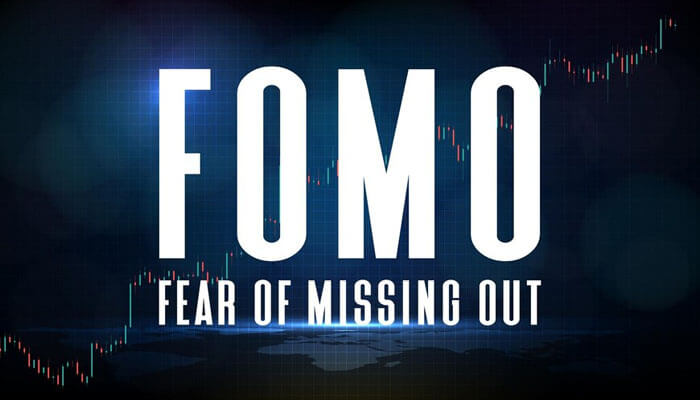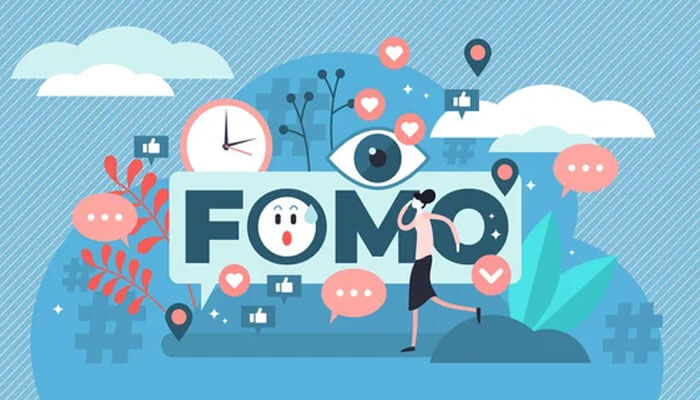FOMO is an acronym for “fear of missing out.” It is a feeling of anxiety or insecurity that arises from the belief that others might be having more rewarding experiences or opportunities than you are. It is a powerful and pervasive emotion that affects people of all ages and can be triggered by various social situations, such as seeing photos of friends on social media, attending a party or event, or hearing about someone else’s experiences. It can have a significant impact on people’s behavior, influencing their decisions and actions.
FOMO has become an essential tool for marketers in today’s competitive business world. It is used to create a sense of urgency and stimulate demand for products or services. By leveraging FOMO, marketers can tap into the psychological triggers that drive consumer behavior and increase their chances of making a sale.
FOMO is particularly effective in creating a sense of exclusivity, urgency, and scarcity, which can make consumers feel like they are part of a unique and special group. This emotional connection can result in increased brand loyalty and long-term customer engagement. FOMO is especially relevant in the digital age, where social media platforms and e-commerce websites provide consumers with constant access to new products and services. In this context, it can be used to cut through the noise and grab consumers’ attention, leading to increased sales and revenue for businesses.
What is FOMO?
FOMO is the “fear of missing out”, an emotional response to the belief that others are having more enjoyable experiences. It causes anxiety, insecurity, and fear of not fully experiencing life due to social media’s constant stream of information.
Characteristics of FOMO:
It is characterized by several distinct features, including:
1. Anxiety:
FOMO can cause feelings of anxiety or nervousness, which can lead to negative emotions like stress or sadness.
2. Social pressure:
It can arise from a sense of social pressure to conform to the expectations of others or to participate in activities that are popular or highly regarded.
3. Anticipation:
FOMO can be fueled by a sense of anticipation for future events or activities that are highly anticipated or highly regarded.”
4. Regret:
FOMO can lead to feelings of regret or disappointment if one misses out on an experience that is highly regarded by others.
Causes of FOMO:
Several factors contribute to the development of FOMO, including:
1. Social media:
Social media has created an environment where people can easily compare their lives to others, leading to feelings of insecurity or inadequacy.
2. Digital communication:
The constant stream of information and notifications on smartphones and other devices can create a sense of urgency and FOMO.
3. Cultural norms:
Social norms and cultural expectations can create pressure to conform to certain activities or lifestyles.
4. Personal insecurities:
Personal insecurities or past experiences can also contribute to the development of FOMO. For example, someone who has missed out on opportunities in the past may be more likely to experience it in the future.
How is FOMO used in marketing today?
1. FOMO in advertising:
Creating a sense of urgency: Marketers use it to create a sense of urgency in their advertising. By emphasizing the limited availability of a product or service, they can make customers feel that they must act quickly to avoid missing out on a great deal or opportunity. For example, using phrases like “Act Now” or “Limited Time Offer” can create a sense of urgency and encourage customers to make a purchase.
When it comes to the gambling and casino industry, it is a powerful marketing tool that is often used to promote limited-time offers and special promotions. As for today, These codes may include bonus codes that provide players with free spins, bonus cash, or other rewards, but they are only available for a limited period. By creating a sense of urgency and scarcity, casinos can encourage players to act quickly and claim their rewards. However, it’s important to keep in mind that it can also be a double-edged sword.
While it can be an effective marketing tactic, it can also lead to irresponsible gambling behavior if not used responsibly. That’s why it’s essential to gamble responsibly and never chase losses or gamble beyond your means. If you’re looking for the best online casinos for gambling and casino games, it’s important to choose a reputable platform that offers a wide range of games and a secure and fair gaming experience. By checking out these sites, you can find objective and unbiased reviews of the top online casinos in the industry, including those that offer special bonus codes and promotions.
However, always make sure to read the terms and conditions carefully before claiming any bonuses or promotions, and never gamble more than you can afford to lose.
2. FOMO in social media marketing:
3. Influencer marketing:
Marketers use FOMO to promote their products or services through influencer marketing. Influencers have large followings on social media, and their followers often look up to them as trendsetters. By partnering with influencers and showcasing their products or services, marketers can create a sense of fear of missing out among their followers.
4. User-generated content:
Marketers use FOMO to promote user-generated content. By encouraging customers to share their experiences with their products or services on social media, they can create a sense of fear of missing out among their followers. For example, a travel company might encourage customers to share photos of their trips with a specific hashtag, creating a sense of FOMO among their followers who have not yet taken the trip.
5. Live events:
Marketers use it to promote live events. By creating exclusive or limited availability events, they can make customers feel that they must attend to avoid missing out on a great experience. For example, a music festival might release a limited number of tickets for a VIP experience that includes exclusive access and perks, creating a sense of fear of missing out among music fans.
FOMO in e-commerce:
1. Product scarcity:
Marketers use FOMO to promote product scarcity. By creating a sense of urgency, retailers can prompt customers to act quickly to avoid missing out. For instance, an online store may label a product as “low stock” to encourage purchases.
2. Personalized recommendations:
Marketers use FOMO to promote personalized recommendations. By suggesting similar products, businesses can create FOMO among customers who fear missing out. An online casino may recommend games based on players’ activity, generating FOMO around those games.
3. Customer reviews:
Marketers use FOMO to promote customer reviews. By emphasizing positive reviews and testimonials, they can generate it among potential customers, like showcasing good feedback for online casino games to encourage more players.
The ethics of using FOMO in marketing
1. Positive and negative effects of FOMO on consumers:
It can have both positive and negative effects on consumers. On the positive side, it can help customers discover new products and services they might not have otherwise known about. It can also create a sense of excitement and urgency around purchasing a product, which can increase customer engagement and loyalty. On the negative side, it can also lead to impulsive purchases and buyer’s remorse. Customers may feel pressure to purchase a product quickly to avoid missing out, even if it is not the best fit for their needs.
2. Responsibility of marketers in using FOMO:
Marketers have a responsibility to use it ethically and responsibly. They should not use it to manipulate or exploit customers, and they should always provide accurate information about the product or service being promoted. Moreover, marketers should also be transparent about any limitations or exclusions that may apply to a promotion.
3. Balancing FOMO with authenticity:
Marketers should strive to balance FOMO with authenticity. They should focus on building genuine relationships with customers and creating products and services that meet their needs. By focusing on providing value to customers, marketers can create a sense of FOMO that is based on the quality of their products and services, rather than artificial scarcity or hype. This can help build long-term customer loyalty and trust.
Conclusion
In conclusion, it is a powerful psychological phenomenon that has become increasingly important in marketing today. By understanding the causes and characteristics of FOMO, marketers can use it to create compelling promotions and marketing campaigns. However, marketers also have a responsibility to use the fear of missing out ethically and responsibly and to balance it with authenticity and transparency.
It can promote new products and services and generate excitement and urgency for purchases. Marketers must prioritize customers, provide accurate information, and build trust for a mutually beneficial relationship.



